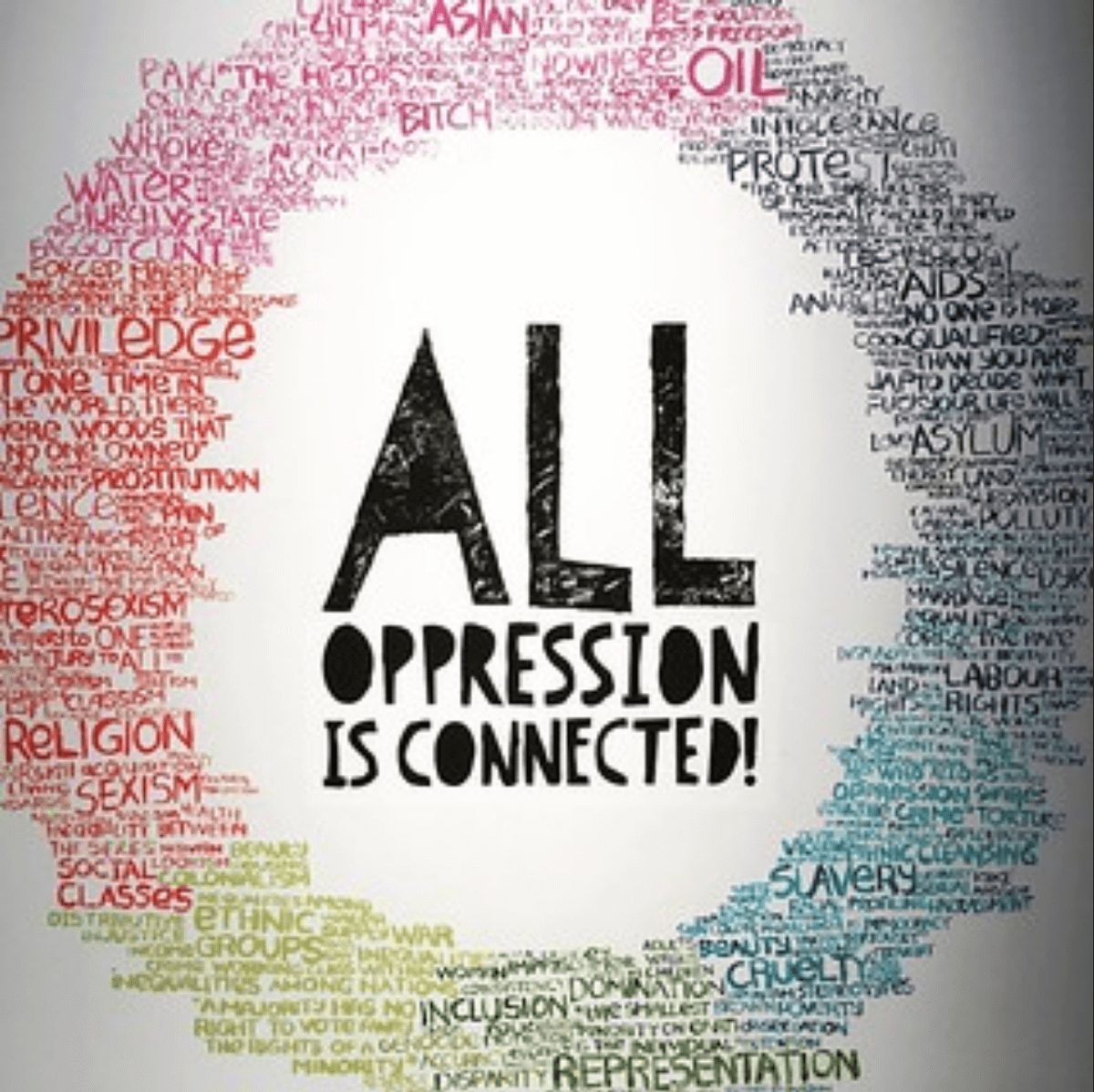
by DGR News Service | Apr 30, 2019 | Colonialism & Conquest, Male Supremacy, White Supremacy
By Elisabeth Robson / Art for Culture Change
All oppression is connected.
All oppression is related to resource extraction.
Whether that resource is black Africans forced into slavery, a massive energy resource that powered settler-colonial America….
or the resource is women’s reproductive power, exploited by men who restrict women’s bodily autonomy and oppress women in the process….
or the resource is land taken from indigenous cultures and from wild animals for colonial settlers to farm….
or the resource is land taken from indigenous cultures and from wild animals for wind farms and solar farms…
or the resource is iron ore, copper, gold, coal, oil, gas, or sand taken from the land, taken from indigenous cultures and the poor for corporations and the rich people who run them…
or the resource is fresh clean water and fresh clean air, taken from us all by corporations to use as the dumping ground for their pollution, as commerce reigns supreme and supreme courts grant corporations more rights than people.
All Oppression is Connected. All Oppression is Related to Resource Extraction.
Image: All Oppression is Connected is a wall painting by Kenyan artist Jim Chuchu, inspired by the poetry of Jamaican artist Staceyann Chin. Labeled for noncommerical reuse on baldiri Flickr.
About Deep Green Resistance
DGR is a political movement for liberation and revolution. We aim for nothing less than total liberation from extractive economics, white supremacy, patriarchy, colonialism, industrialism, and the culture of empire that we call civilization. This is a war for survival, and we’re losing. We aim to turn the tide. We mean to win.
And we’re recruiting. DGR is building an international movement dedicated to grassroots revolutionary change. Anyone can contribute: we need warriors, poets, writers, organizers, workers, mothers, thinkers, students, farmers. We need you.
— Join Deep Green Resistance —
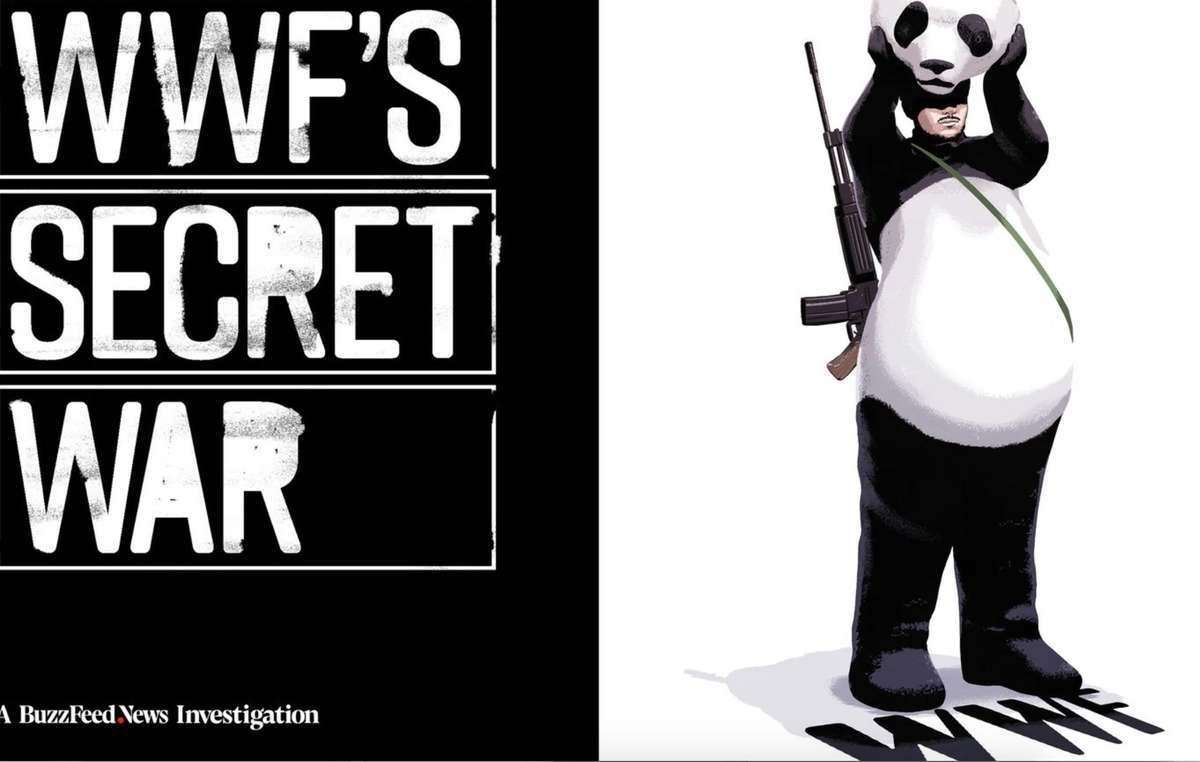
by Deep Green Resistance News Service | Apr 4, 2019 | Colonialism & Conquest
Featured image: A major investigation by news site Buzzfeed, released March 4, 2019, exposed a shocking level of violent abuse by ecoguards and rangers funded by the World Wildlife Fund (WWF). © Buzzfeed
by Survival International
Britain’s charity regulator has launched an official investigation into WWF, in a major blow to the embattled organization.
The inquiry follows an explosive report by Buzzfeed News that revealed that WWF funds, equips, and works directly with paramilitary forces that have been accused of beating, torturing, sexually assaulting, and murdering scores of people.
WWF’s main response to the Buzzfeed exposé has been to commission a law firm specializing in “reputation management” to conduct an “independent review.”
The investigation will examine whether WWF UK conducts proper due diligence to ensure that the grant money it sends overseas does not contribute to violence.
In a statement, the commission said the “atrocities and human rights abuses that were alleged are at odds with everything we associate with charity.”
The news comes just a day before the launch of the new Netflix-WWF series Our Planet, narrated by Sir David Attenborough.
Survival International’s Director Stephen Corry said today: “It’s a step forward that the Charity Commission is finally launching an investigation, but we’re not holding our breath. The Commission is only concerned with WWFUK, and has no ability to judge its complicity in human rights violations.
“The most that will happen is that it will require WWF to investigate, which WWF has already said it’ll do. We’ll then have a long wait, ending in a bucket of whitewash.
“WWF has known about these atrocities for years. Let’s not forget that, at this moment, WWF is calling for a new protected area, Messok Dja, which is stealing Baka “Pygmy” land in Congo. What we need is a public outcry against fortress conservation which is so damaging to the planet and its peoples.”
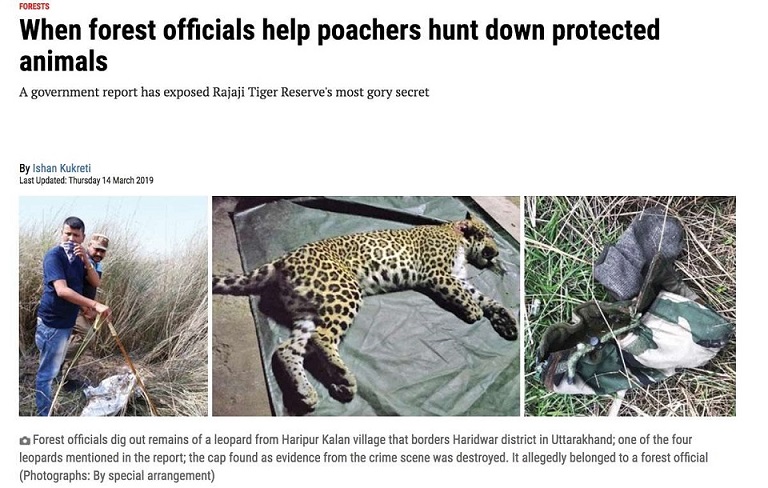
by Deep Green Resistance News Service | Mar 17, 2019 | Colonialism & Conquest
Featured image: The collusion between officials and poachers was exposed in India’s Down to Earth magazine. © Down to Earth
by Survival International
Park officials in India’s Rajaji Tiger Reserve colluded with poachers in the killing of endangered leopards, tigers and pangolin, according to an investigation by a senior wildlife officer.
The accused officials range from the park director to junior guards. WWF-India boasts that it trained “all Rajaji frontline staff in skills that were vital for protection,” including law-enforcement. It also provided vehicles, uniforms and essential anti-poaching equipment to the guards.
The investigation, reported in India’s Down to Earth magazine, found that not only were officials helping to hunt down and kill wildlife, they also beat and tortured a man named Amit – an innocent villager who was trying to stop the poaching.
Officials are reported to have arrested Amit under false charges, resulting in him being detained for up to a month. He was also beaten and given electric shocks by a wildlife warden and two range officers.
These revelations of serious human rights abuses by guards trained and supported by WWF follow the recent Buzzfeed exposés that WWF funds guards who kill and torture people.
The involvement of those supposed to protect wildlife in hunting is common. A UN report in 2016 confirmed that corrupt officials are at the heart of wildlife crime in many parts of the world, rather than tribal peoples who hunt to feed their families.
Stephen Corry, Survival International’s Director, said today: “Rangers who poach as well as violate human rights won’t surprise those environmentalists who’ve been speaking against fortress conservation for years. Corrupt rangers often collude with poachers, while tribal people, the best conservationists, bear the brunt of conservation abuses.”
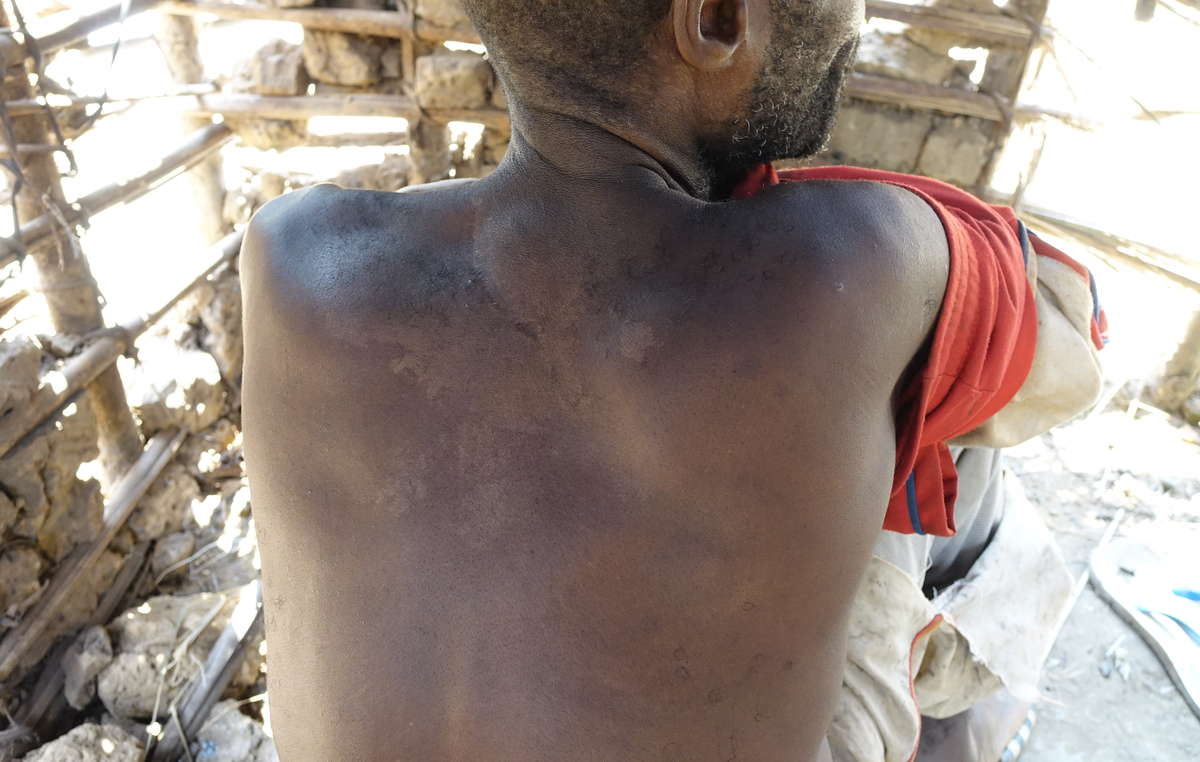
by Deep Green Resistance News Service | Mar 9, 2019 | Colonialism & Conquest
Featured image: A man from a village near the proposed Messok Dja national park shows scars from a beating he received at the hands of ecoguards supported and funded by World Wildlife Fund. © Fiore Longo/Survival International
by Gabriella Rutherford, Survival International / Intercontinental Cry
The dense Messok Dja rainforest has been home to the Baka Peoples since time immemorial. But now the forest is being closed off to them to make way for a new national park. Although the park hasn’t been formally established, the Baka are being driven from their homes and deprived of their vital lifeline of forest resources—with devastating results.
For nearly a decade, the World Wide Fund for Nature (WWF) has been working with the Congolese government to set up the Messok Dja National Park with the help of funding bodies like the European Commission (EC), the US Fish and Wildlife Service (USFWS) and the United Nations Development Programme (UNDP).
During this time, WWF-funded park rangers have actively patrolled the area. The Baka, who are vehemently opposed to the national park, have routinely denounced the rangers, whom they accuse of violence, discrimination and torture.
One Baka woman described how “The wildlife guards just want to kill us. Once, I had just gone to do some dam-fishing. I was coming back with some fish to grill in packages made of leaves, to eat with my husband and children. I’m coming back with the pot of fish, I put it down. Just like that, the ecoguards grab me: Bam, bam, bam. For no reason. I hadn’t provoked them, I didn’t owe them anything. They just beat me and I don’t even know what for.”
Another man reported, “We just suffer these terrible beatings here for nothing. If they see us, they just beat us with machetes. Bam, bam, bam [on your body].”
In 2011, park rangers operating in the area were involved in a string of events that led to the death of 10-year old Christine Mayi.
In the face of such persecution, many Baka have retreated from the forests to live in road-side camps. Already they are being forced to abandon their age-old tradition of “molongo” – going deep into the forest for extended periods to hunt and gather. This is now impossible as one Baka woman explained:
“How can I go into the forest?…I just go round in circles here. At this time of year I gather wild mangos, [but] now I just stay close to the road. I just gather the mangoes that are near here.. that’s their forest – they’ve taken it.”
Confronted with an alien way of life outside of the forest, the Baka face the very real possibility of food scarcity. “We live from the Lipolo forest: wild mangoes, fish, meat, wild honey and yams, everything… but it’s now blocked off and we’re left to suffer. We don’t know how we can live.”
Conservation-related malnutrition among tribal peoples in the Congo is already a well-documented problem. In 2017, a Congolese organization raised concerns that conservation had contributed to the deaths of several dozen Bayaka children during an epidemic in 2016. The deaths were attributed by a medical expert to malaria, pneumonia and dysentery, aggravated by severe malnutrition.
“We’re suffering here. We don’t know how we’re going to survive. There is nowhere for us to live. It’s as though any value we have is gone.”
And of course, when the Baka now fall ill, they are unable to collect the medicinal plants they need from the forest.
To make matters worse, the Baka communities have never given their consent for the national park, with one local Baka chief explaining, “We can’t agree to it. Everything is there: food, life, health all come from that forest. If we were to give up the forest, we’d be sacrificing our children’s lives, our parents’ lives, our own lives. It would be as if someone were committing suicide.”
The Baka remain resolute in their opposition to the project. The forest is not only key to their survival, it lies at the heart of their sense of community and identity. Life outside it is simply inconceivable to them.
“We Baka, we’re not the type of people who just stay in the village. We’re forest people… Our life, our future is out in the forest. For us and for our children. I know the forest from A-Z. Every root, every tree.”
Many Baka communities have written signed letters of complaint which they asked Survival International to forward to the funders of the proposed park. One letter reads, “If the park is established in our forest, it will be very serious. Instead of working with us, the park rangers have made us suffer so much: they beat us, they whip us with their belts. If that carries on, how will our children live? We are told that according to international law, before starting a project in our forest they need to ask our consent. So we ask you to come here, listen to us and see our suffering, and make sure the law is respected.”
The Baka’s understanding of their legal rights is sound: international law indeed dictates that the free, prior and informed consent (FPIC) of local communities must be obtained for major projects undertaken on their land. Without their consent, Messok Dja National Park is illegal.
In spite of this, WWF is pushing ahead with its plans for Messok Dja and the project continues to enjoy the support of the EC and USFWS as major donors. Neither of these funding bodies or the conservation giant show any signs of pulling the millions of dollars they have committed to the project.
The Baka–who are excellent conservationists in their own right–are adamant that this must change, and reproach those funding the project for their lack of financial responsibility: “[We] want those funding the park to take action. We’ve never seen a white person come to see where their money is going.”
Despite the considerable body of evidence of terrible human rights violations committed against the Baka, WWF has thus far denied any allegations of wrongdoing. A recent tweet read: “As if WWF would allow local communities to be systematically abused, that really is too crazy for words!”
“[We] want those funding the park to take action. We’ve never seen a white person come to see where their money is going.”
In an article written last year, a WWF coordinator described how its ranger team in northern Congo was “fully supported by WWF, and therefore well supervised and equipped.” He went on to praise the team for their efforts to stabilize elephant numbers in the region.
The conservation organization insists that it “takes the allegations seriously.” However it has not replied to any of the community complaints submitted via their whistle-blowing mechanism in July last year regarding the Messok Dja project.
The organization says it aims to respond to complaints made within two weeks.
The European Commission has defended its involvement in the conservation initiative, stressing that Messok Dja “ought to contribute to the improvement of the living conditions of the communities around the park as well as upholding conservation objectives.”
The USFWS was made aware of the situation facing the Baka in Messok Dja in November last year. Survival International has no record of any reply.
The case of Messok Dja National Park and the fate of the Baka tribe is far from an isolated case. Survival International has already reported extensively on the conservation-related human rights abuses in the context of the Congo Basin, Africa and India; it is truly a global problem.
The tribal peoples’ rights organization says that up to 14 million people worldwide have been evicted from their lands in the name of conservation. One study even calculated that the number could be as high 136 million people. In India alone, a recent ruling by the Supreme Court means that some 8 million tribal and other forest-dwelling people could be evicted from their forests due to pressure from conservation groups.
It is clear that neither the scope nor the serious nature of conservation-related problems faced by indigenous and tribal peoples worldwide can be overlooked. Survival International says that the Baka now face “existential threat as a hunter-gatherer tribe” as a result of the Messok Dja conservation initiative.
There are reasons for optimism however.
Survival’s conservation campaign continues to gain momentum and with a damning indictment of WWF’s human rights record published this week by the news platform Buzzfeed, the pressure is now very much on the WWF, and the conservation industry at large, to dramatically change the way it operates and respect tribal peoples’ rights.
Editor’s note: Read more at Cover up: Buzzfeed reveals WWF KNEW locals opposed its flagship park – but hid this from funders.
Learn more about Survival International’s campaign to prevent the illegal eviction of the Baka from their forests here.
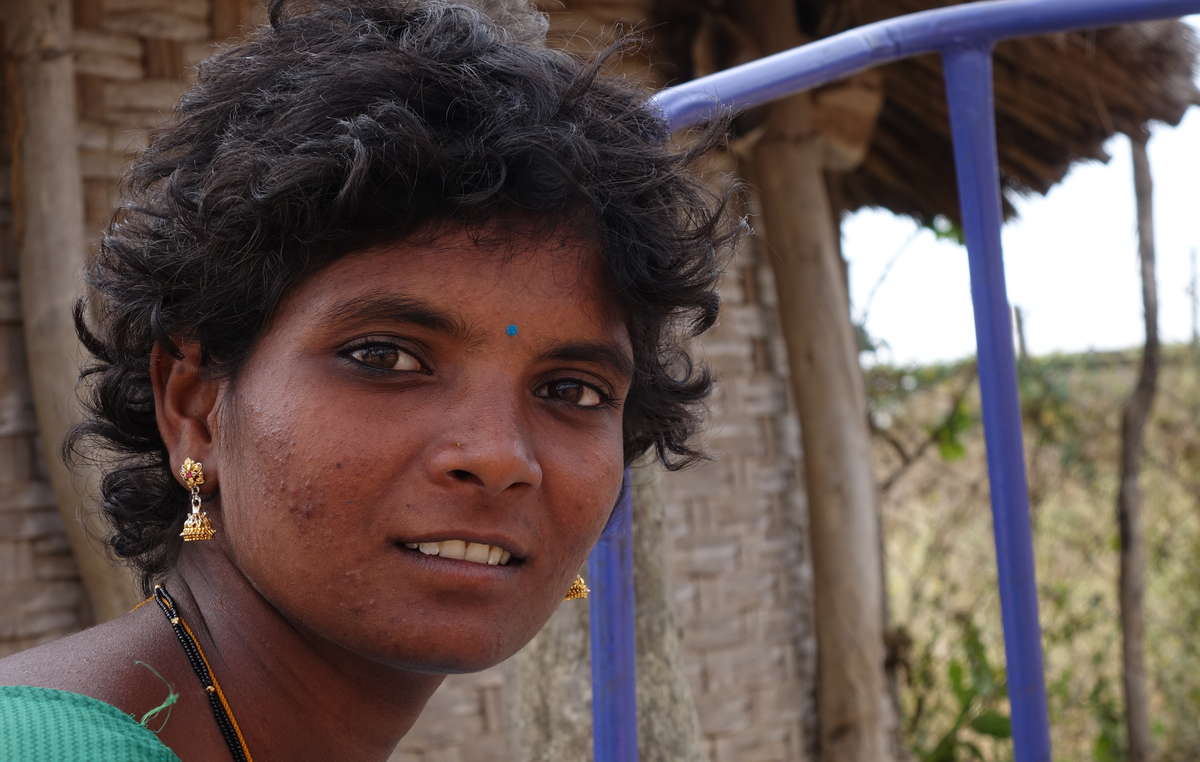
by Deep Green Resistance News Service | Feb 23, 2019 | Colonialism & Conquest
Featured image: Many tribes, like some Chenchu, have already been evicted after their lands were turned into tiger reserves. Now millions more face eviction. © Survival International
by Survival International
India’s Supreme Court has ordered the eviction of up to 8 million tribal and other forest-dwelling people, in what campaigners have described as “an unprecedented disaster,” and “the biggest mass eviction in the name of conservation, ever.”
The ruling is in response to requests by Indian conservation groups to declare invalid the Forest Rights Act, which gives forest-dwelling people rights to their ancestral lands, including in protected areas. The groups had also demanded that where tribespeople had tried and failed to secure their rights under the Act, they should be evicted.
The groups reportedly include Wildlife First, Wildlife Trust of India, the Nature Conservation Society, the Tiger Research and Conservation Trust and the Bombay Natural History Society.
In an extraordinary move, the national government failed to appear in court to defend the tribespeople’s rights, and the Court therefore ruled in favor of the evictions, which it decreed should be completed by July 27.
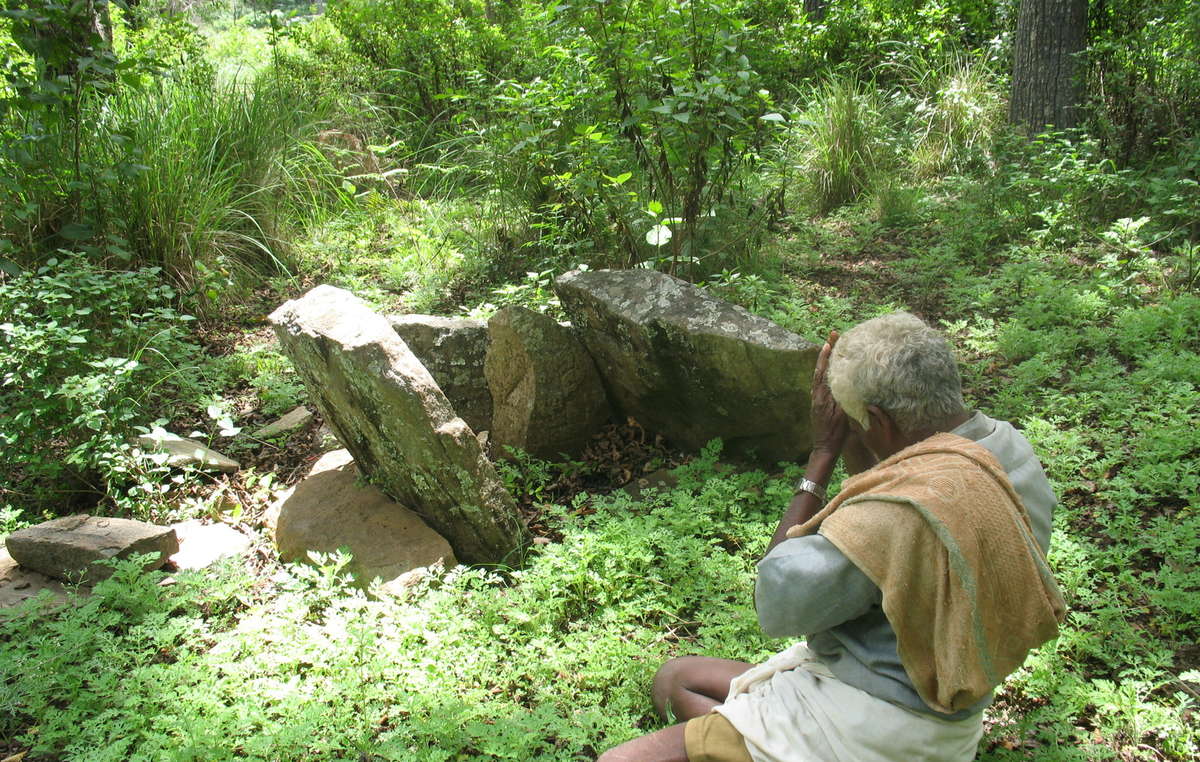
A Soliga man worships at a sacred site, now inside a tiger reserve. © Atree/Survival
The order affects more than 1.1 million households, with experts estimating this could mean more than 8 million individuals will now be evicted – and the number is likely to rise, as some states have not provided details as to how many will be affected.
Survival International’s Director Stephen Corry said today: “This judgement is a death sentence for millions of tribal people in India, land theft on an epic scale, and a monumental injustice.
“It will lead to wholesale misery, impoverishment, disease and death, an urgent humanitarian crisis, and it will do nothing to save the forests which these tribespeople have protected for generations.
“Will the big conservation organizations like WWF and WCS condemn this ruling and pledge to fight it, or will they be complicit in the biggest mass eviction in the name of conservation, ever?”
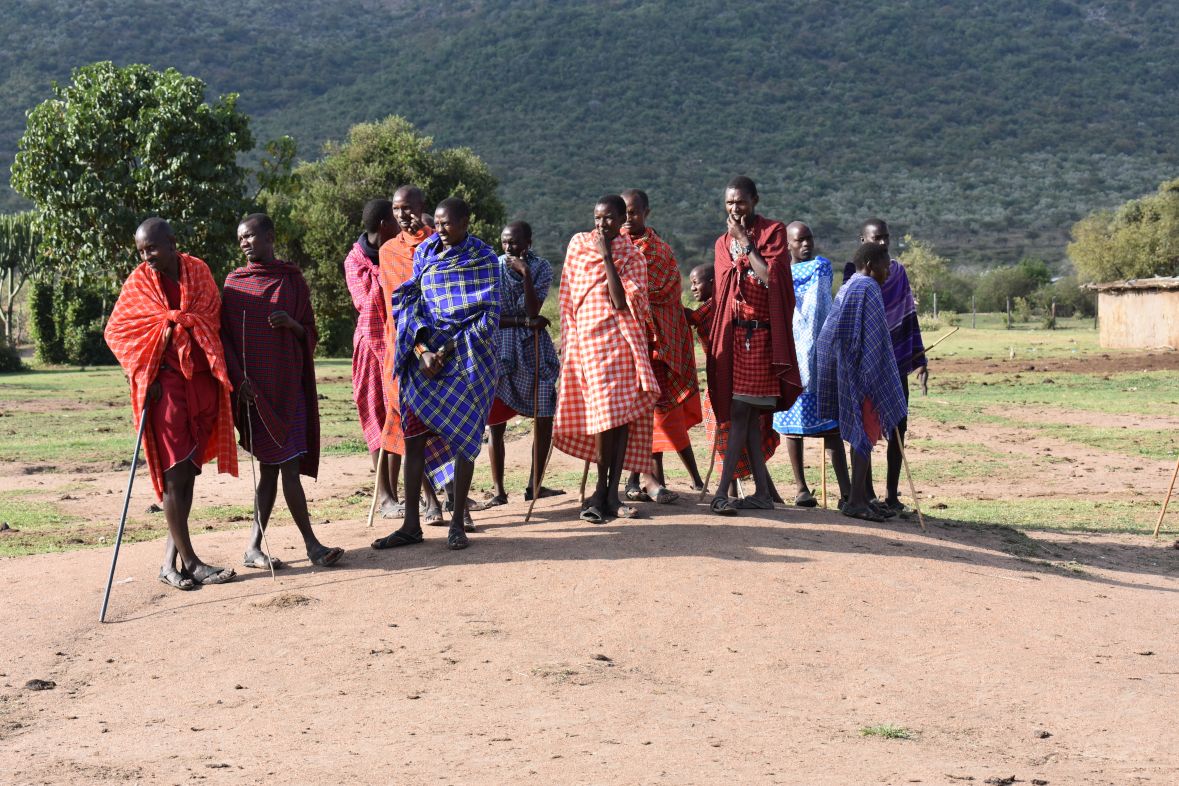
by DGR News Service | Feb 13, 2019 | Colonialism & Conquest
by Rudolph C. Rÿser / Intercontinental Cry
Ever since the German Nazis committed horrendous mass murders of Jews, homosexuals, Roma, and Catholics, many commentators, analysts and scholars have made the mistake of associating “genocide” with “executions and gassing” of people en masse.
The originator of the term “genocide” attorney and author Raphael Lemkin’s analysis essentially explains this error when his analysis points to how the Holocaust is not a synonym for genocide, but the consequence of Nazi imperialism and Colonialism in Europe. While the massive murders by the Nazi government was a horrific case of human destruction the genocide had already begun before the killings. Read from Lemkin’s book, Axis Rule in Occupied Europe (Washington, DC: Carnegie Council, 1944) on page 79 how he describes genocide:
Genocide has two phases: one, destruction of the national pattern of the oppressed group: the other, the imposition of the national pattern of the oppressor. This imposition, in turn, may be made upon the oppressed population, which is allowed to remain, or upon the territory alone, after removal of the population and the colonization of the area by the oppressor’s own nationals.
In other words, when a distinct people is systematically occupied by an outside population with the intention of replacing that population with the invading people under the instrumentality of a government or other organized agent monopolizing violence, that process is genocide. All events after the occupation—the Colonization—are the result of the initial genocide.
Scholars claim that there have been no fewer than 181 “genocides” since what they describe as the “beginning of genocides” in 1945–that is, instances where human beings have been massively killed with the intention of destroying that human population.
The Center for World Indigenous Studies is conducting a study of “Genocides against Fourth World Peoples” to learn about the extent of genocide (in the Lemkin sense and in the latter-day scholars’ sense) committed against Fourth World peoples and what alternatives exist to establish justice and prevent occurrences of genocide.
By simply examining the continental figures for Africa, the Americas, Asia, Europe and the Middle East gathered by contemporary scholars tabulating the killings of groups by particular perpetrators we find that 156 Fourth Nations have been invaded with the resultant killing of an estimated 12.482 million people between 1945 and 2017.
Up to 58 UN member state governments and the militias they supported were responsible for all 156 invasions and ultimate killings of Fourth World peoples.
ESTIMATED POST-GENOCIDE KILLINGS FROM 1945-2017
| CONTINENT |
PEOPLE KILLED |
FW NATIONS OCCUPIED |
| Africa |
7,153,400 |
77 |
| Americas |
544,000 |
15 |
| Asia |
3,953,500 |
34 |
| Europe |
400,000 |
12 |
| Middle East |
431,100 |
18 |
| TOTALS |
12,482,000 |
156 |
© CWIS 2018
Our initial finding is that “governments” (Republics, Dictatorships, Empires, Kingdoms) commit the vast majority of genocides in both the Lemkin and the latter-day scholars’ sense.
According to our estimate, UN member states committed an average of 51% of all 181 incidents of genocide counted by contemporary scholars. That figure alone is astonishing, since invasions and killings of Fourth World nations account for about 86% of all “genocides” counted by contemporary scholars since 1945.
Clearly by these numbers alone, cultural genocide and massive killings constitute a major feature of genocide over the last 70 years and beyond. But, curiously, despite the International Convention on Genocide (1948) and the Rome Statute of 2002 that created the International Criminal Court, the cultural genocide of a people in whole or in part has not been prosecuted. And, of equal interest is the fact that not one of the governments responsible for invasions and then killing of Fourth World people has been sanctioned by the international community or any juridical forum.
Ongoing genocides are taking place now in China against the Uyghurs, Iraq against the Yezidi, Madaeans, Zoroastrians, and Assyrians; and against the Rohingya in Burma; and many other nations.
CASE STUDY: THE INDIGENOUS UYGHURS
Many Fourth World nations are suffering under invasion, occupation and killings similar to the Rohingya in southwestern Burmawhat and the Uyghurs. States cannot be permitted to continue the carnage.
Uyghuristan is the homeland of more than 12 million Uyghurs neighboring Mongolia, China, Russia, Kazakhstan, Kyrgyzstan, and Afghanistan. It has been an established nation of people for more than 2,500 years and the peoples’ written history extends to 1,480 BP. According to the TENGRITAGH AKADEMIYESI Uyghur Academy of Arts and Science Uyghurs were identified by Europeans as “Turkic” and referred to as “Taranchi.” The Russians referred to the Uyghurs as “Sart” or “Turk.” That their language is related to neighboring Turkic languages may have been the reason for these misapplied names. The Kuomintang government of China grouped all Uyghurs as part of the 11 million mostly Moslem Hui people who are located in northwestern China. Despite the practice of Islam, they are completely separate peoples.
Since the Peoples’ Republic of China under Mao Zedong and his successors annexed Uyghuristan the Uyghurs have pursued their independence and have frequently attempted to call the world’s attention to China’s cultural genocide against the Uyghurs.
Until China claimed Uyghuristan in 1949, the Uyghur population constituted more than 94% of the total population in the country. China has systematically relocated Han Chinese into Uyghuristan reducing the Uyghur proportion of the total population to a little more than 45%. Effectively the Chinese have committed cultural genocide by invading, occupying and attempted to replace the Uyghur population with its own population. The Uyghur resistance is strong and persistent to the point where the Chinese government as recently as 25 January 2018 began placing Uyghurs in “re-education camps” to force their fealty to the Chinese government. They have imprisoned tens of thousands and, under the veil of “terrorism” as their justification, killed many thousands more.
Yes, 156 Fourth World nations have suffered cultural genocide since 1945 and not one government responsible for invasions and killings of millions of people have been called to account.
Rudolph Ryser is the Chair of the Center for World Indigenous Studies.







